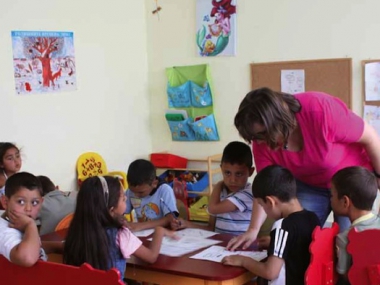Parents and Cities – a Winning Partnership to Boost Employment for Young People
Edited on
09 October 2017URBACT PREVENT network thinks so. The 10 partner cities work with parents to prevent Early School Leaving (ESL). Their aim is to guarantee better school to work transition, making sure that young people have the skills and qualifications necessary for better jobs and for a more active role as citizens.

Fighting early school leaving. Which benefits?
The reasons for fighting ESL have long been demonstrated and have an impact on various levels of our lives. First of all, education benefits to the individual: staying in school for one extra year can improve a young person’s work life earnings with at least EUR 70000, not to mention improved life expectancy and health status1. The government benefits as well as education and active professional life generally mean increased tax payments and a lower reliance on government welfare, health programs or subsidies for education. Educated and active people benefit to the society as well, leading to lower crime rates and increased health conditions. This issue is equally important at EU level as well. A main target of the Europe 2020 strategy is to reduce the general early school leaving rate to less than 10% by 2020. It is a well-motivated target, also with reference to current unemployment rates, not the least for many of Europe’s young. High rates of early school leavers mean a tremendous waste of potential and, as presented above, a major barrier to personal, social and economic development. Furthermore, as ESL is proportionally higher in urban areas, many cities, especially with regards to the emerging crisis, will experience higher costs to the welfare/social systems as unemployment rates are most likely to rise for the period to come. This situation puts them in the first line of combat against ESF. But if we all agree on the reasons for fighting ESL, how to concretely and successfully put it in practice?
Towards a holistic approach…
Causes for ESL on the individual level can be complex and not always easy to address. ESL:ers are not a homogenous group, and there is often more than one problem leading to the ESL situation. Nor is ESL a “sudden” action. Research shows that the decision to drop out or to not proceed to higher education could be the final step in a long process, where the young individual has faced several negative implications finally leading to the decision. Rather than accepting ESL as a sign of the times, current research and projects focus on structural and/or systemic causes that could have an impact on, and hopefully also offer some additional explanation, on why young people leave school early. This trend prevents stigmatising of individuals and groups and instead, promotes searching for, and adapting, existing structures and systems to be better equipped to deal with challenges related to the issue of early school leaving – and to the demands attached to it.
… including parents and cities
To this holistic approach, PREVENT network adds two key elements: • considering parents as a key part of the solution to reduce ESL, and • considering cities as driving forces to create synergies, common understanding and to promote and develop innovative collaboration between stakeholders. Research clearly stresses the involvement of parents and/or families and caretakers as a key element and a major success factor in reducing the rate of ESL. But many actions and projects aiming at ESL prevention exclude parents as a target groups. As one answer to this gap, the PREVENT network was set up with an idea to find already existing good practices of parental involvement that could be shared and disseminated on the one hand, and to develop new ways to involve parents in preventive measures on the other. More concretely, this means that the PREVENT network works at bringing schools, students and parents closer together in preventing ESL. Building strong links between multiple stakeholders, using and supporting a holistic approach, can have real impact on several areas, each one of great value to fight ESL: • the way schools connect to parents and families • the school climate • the way support is being offered both to parents, teachers/schools and students • the way other actors, stakeholders and brokers in society could be involved Addressing the ESL issue by using the parental approach can be a way to find new solutions on the ESL topic as such, but can also bring added value to the fields of child/youth and parent relations, to enhanced school and educational performance, to stakeholder involvement in city planning and service delivery as well as to policy and decision making. Early school leaving is not an isolated matter; it is a multi-facetted problem with roots and causes on many levels. To better understand these, we need to make connections to all relevant stakeholders – to visualise the needs, the worries and the resources. PREVENT partners have a name for this approach. They call it PREVENT-OLOGY. The model is being used to coordinate good practices, gaps and ideas. At the end of this journey they will present a map of ways, innovative as well as well established, that from a multi level approach, useful for cities all over Europe interested in reducing and preventing ESL – with a clear focus and ambition to involve and support parents as one major success factor!  “Good practice Sourcebook”, by Ulf Hägglund .
“Good practice Sourcebook”, by Ulf Hägglund .
Read more:
PRVENT minisite – URBACT website
Good Practice Sourcebook - project document
Submitted by admin on
